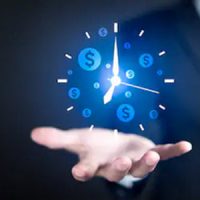What You Need to Know about Chapter 13 Bankruptcy

A Chapter 7 bankruptcy isn’t always the right choice for people. Fortunately, another option exists for consumers—a Chapter 13. This is the less popular of the two. For example, in 2020, 7 out of 10 Floridians filing for bankruptcy have filed Chapter 7; the remainder filed Chapter 13.
However, Chapter 13 has many advantages and might be just what you need. Our Plantation bankruptcy attorney looks at some key features.
You Can Stop Creditor Actions, including Foreclosures
The automatic stay goes into effect when you file for bankruptcy protection. Even better, it will stay in effect for the entirety of the Chapter 13, which could last 3 or 5 years.
The automatic stay will also stop any foreclosure action. Any past-due mortgage payments can be spread out over the length of your repayment plan, which gives a debtor extra time to become current. Of course, you must continue to make your payments every month, otherwise your creditor could start up a foreclosure action.
You Must Be a Wage Earner to File for Chapter 13
Because debtors must stick to a payment plan over several years, this bankruptcy is reserved for those with regular income. If you are self-employed or a sole proprietor, then you will need to prove how much you earn and must keep very thorough documentation. Work closely with your lawyer to fully document self-employment income.
Your Chapter 13 Will Stay on Your Credit Report for Seven Years
Of course, over time, this negative information will impact you less. However, it is something you should be prepared to talk about if you apply for a job or try to rent an apartment in the next few years.
You Won’t Lose Property
In a Chapter 7, the trustee could take property, such as your vehicle and investments, and give it to your creditors. With a Chapter 13, by contrast, the debtor doesn’t lose any property so long as they continue to make their payments according to the plan.
There are Debt Limits, but No Income Limits
A Chapter 7 requires that debtors pass a “means test” that compares their income to the Florida average. There is no means testing with Chapter 13. This makes it an attractive option for high income individuals.
Still, there are limits to the amount of debt you can have. As of June 2020, the limits are:
- Unsecured debt: $419,275
- Secured debt: $1,257,850
There Are Options if You Can’t Make Payment
It might be difficult sticking with a plan that lasts several years. All sorts of unexpected events can crop up, such as temporary job loss or illness. Who would have anticipated the economic collapse following the coronavirus pandemic, for example?
With a Chapter 13, you must notify the court any time you can’t make your monthly payment. The judge might grant a temporary moratorium, or you might need to modify your plan to deal with a permanent change in circumstances.
Contact Nowack & Olson, PLLC
Our Plantation bankruptcy attorneys have helped more than 20,000 people obtain a fresh financial start. To schedule a consultation, please call 888-813-4737.
Resource:
abi.org/newsroom/bankruptcy-statistics
